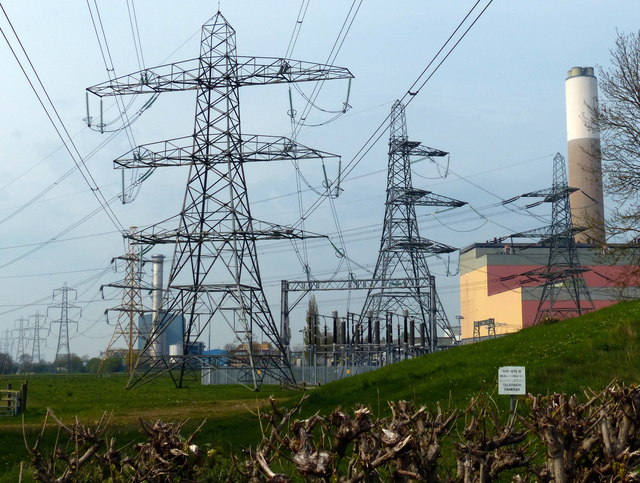- Details
- Written by: J C Burke
- Hits: 111
 Climate Ideology will Cost Every Consumer Dearly
Climate Ideology will Cost Every Consumer Dearly
We have looked at this parliamentary briefing [CLICK HERE] to analyze their approach to housing "decarbonization". This is ideological climate policy masquerading as engineering sense. Let us break down the insanity we've identified:
The "Fabric First" Abandonment is Thermodynamically Insane
The parliamentary briefing shows that some organizations like Nesta argue it's not cost-effective to insulate every home to a high standard, and that households should install heat pumps even if their home is poorly insulated. The University of Oxford researchers claim that for many homes the solution will be to put in a heat pump first.
This is fundamentally backwards physics:
Why "Heat Pump First" is Wrong:
- Heat loss is heat loss - Whether you heat with gas, electricity, or magic pixie dust, every watt of heat escaping through poor fabric is wasted energy that costs money
- Bigger heat pumps = higher capital cost - If heat loss is high, the size of the heat pump required increases, making it more expensive, and if the homeowner later makes energy efficiency upgrades, the heat pump can end up being over-specified, leading to systems that use too much power and are difficult to control
- Heat pump efficiency degrades in cold weather - The worse the insulation, the colder the day, the harder the heat pump works, the lower its COP (coefficient of performance), the more electricity it uses
- Running cost comparison flips - A poorly insulated home with a heat pump can cost MORE to heat than the same home with a gas boiler, because:
- Heat pump COP drops to 2-2.5 in very cold weather
- Electricity costs ~3-4x per kWh vs gas
- So 1 kWh of heat from heat pump = ~1.5x the cost of gas boiler heat
The Real Agenda We've Identified:
This is about eliminating gas consumption, not about thermodynamic efficiency or cost: This false agenda is also evident in the OFGEN Consultation Paper - we submitted our response on 17th October 2025 See our article HERE
- Details
- Written by: J C Burke
- Hits: 905
 FT Hydrogen Summit: Strategic Talking Points: Core Message Framework
FT Hydrogen Summit: Strategic Talking Points: Core Message Framework
"I'm not anti-hydrogen - I'm pro-sequencing. Biomethane CHP is the intelligent bridge to hydrogen fuel cells. Why waste 15-20 years when we can deploy 90% efficiency systems today and transition to H2 fuel cells when they're genuinely ready?"
Primary Elevator Pitch (60 seconds)
*"I'm here because I believe in hydrogen's future - but through fuel cells, not current electrolysis systems. The intelligent pathway is biomethane CHP as the immediate bridge solution. We're literally flaring waste biomethane while debating green hydrogen infrastructure.
My specialty is Combined Heat and Power systems using biomethane - 90% efficiency available today. I'm developing a £50m care home portfolio that proves this concept. In 15-20 years, when hydrogen fuel cells achieve 50-60% efficiency, we can transition. But meanwhile, we're capturing waste energy that's currently lost. The UK has successful CHP installations in Islington, Southampton, and Woking proving this bridge strategy works now."*
Key Statistical Ammunition
- Current hydrogen electrolysis: 25-35% efficiency vs Biomethane CHP: 80-90% efficiency
- Future hydrogen fuel cells: 50-60% efficiency (15-20 years) vs CHP available now: 80-90%
- UK transmission losses: 8-10% annually vs Local CHP: Zero transmission losses
- Hydrogen infrastructure cost: £100+ billion vs CHP leveraging existing gas grid + biomethane: Fraction of the cost
- Timeline: Green hydrogen commercial viability 2030+ vs Biomethane CHP deployment: Immediate
- Waste biomethane: Currently flared or released vs CHP utilization: Captures waste energy streams
- Details
- Written by: J C Burke
- Hits: 1019
 Why the HYDROGEN Summit is Important:
Why the HYDROGEN Summit is Important:
Having attended the World Bio-Gas Summit at the NEC, last year it is important to keep all viable innovative options open. Whilst a big fan of Bio-Methane, we are interested to hear about Hydrogen as a fuel (but presumably not for FUSION just yet!!) Will be attending the World Bio-Gas Summit this year too [9th-10th July 2025 - Birmingham NEC]
FT Sponsored Summit:
24th June 2025; Marriott Grosvenor Square, Mayfair, London W1K 6JP
Hear from 50+ CEOs, energy innovators, policymakers and financiers
- Explore practical hydrogen solutions that are moving from ambition to execution—addressing cost, efficiency, and real-world scalability.
- Delve into the global hydrogen landscape and dive into regional insights from Asia, Africa, and the Middle East.
- Unlock strategies and financial mechanisms needed to de-risk hydrogen projects, secure long-term offtake agreements, and accelerate Final Investment Decision.
Meet 250+ hydrogen pioneers under one roof
- Access exclusive delegate matchmaking with C-suite leaders via the FT Live app—ensuring high-impact connections.
- With 75% of attendees holding senior job titles, this is where the industry’s most influential leaders connect.
- In an intimate setting, build business-critical relationships and kick start new business deals.
 A one-day strategic agenda on transitioning from hype to realism
A one-day strategic agenda on transitioning from hype to realism
- Focused debates and case studies will explore hydrogen s real-world applications including success’ and setbacks.
- Spend less time out of the office and walk away with the knowledge and clarity needed to future proof your strategy.
- Moderated by senior FT journalists to cut through the jargon and bring you realistic opinions.
What’s new for the Hydrogen Summit in 2025 Watch on demand
- Hydrogen vs. Electrification Debate: A first-time discussion on where hydrogen fits in the future energy mix.
- Success & Failure Case Studies: Learn from real-world project successes and mistakes.
- Expanded Global Focus: Insights from Africa, the Middle East & Southeast Asia, alongside Europe & North America.
- Dedicated Financing Discussions: New panels on addressing bankability, securing offtake agreements, and exploring alternative & blended funding models.
- Details
- Written by: J C Burke
- Hits: 1440
 We will be attending this First Ladies Africa Summit - 17th and 18th June 2025.
We will be attending this First Ladies Africa Summit - 17th and 18th June 2025.
Looking forward to expand our Africa engagements with: FLAIR SUMMIT - Speakers
Alignment with Sun Earth Energy Ltd’s Expertise
Location: Royal Leonardo Hotel, 45 Prescot St, London E1 8GP - near Tower Bridge, London
Our strengths include:
- Renewable Energy: Solar, Wind, Geothermal, Bio-digesters and hybrid systems for residential, commercial, and community use.
- Energy-Efficient Construction: Green building materials, smart insulation, and low-carbon designs.
- Joint Funding: Structuring public-private partnerships, grants, and investor-backed models.
At the Flair Summit, we will emphasize how these align with Africa’s needs:
- Energy Access: 600 million Africans lack electricity (IEA, 2024). Our microgrids and solar solutions address this gap.
- Sustainable Infrastructure: Urbanization drives demand for green buildings, where your construction expertise adds value.
- Investment Appeal: Joint funding models reduce risk, appealing to investors and governments at the summit.
Competitive Advantage
Sun Earth Energy Ltd is Differentiated by:
- Our global reach (e.g., UK and Malaysian Based with African market focus).
- Showcasing measurable impacts (e.g., “Our solar and/or bio-digester projects cut energy costs by 40-70% for communities”).
- We are positioning as a collaborative partner, not just a vendor, by proposing co-funded, scalable projects.
- Details
- Written by: J C Burke
- Hits: 2447
AI Sys: AND Based on My Experience
1. Context of Centralized vs. Decentralized Electricity Production
Centralized Electricity Production:
 In the UK, electricity is predominantly generated by large-scale centralized power stations (e.g., gas-fired Combined Cycle Gas Turbines (CCGT), nuclear plants, and large renewable installations like offshore wind farms).
In the UK, electricity is predominantly generated by large-scale centralized power stations (e.g., gas-fired Combined Cycle Gas Turbines (CCGT), nuclear plants, and large renewable installations like offshore wind farms).- These plants are typically located far from urban centres, leading to significant transmission and distribution losses (approximately 7-10% of generated electricity is lost in the grid).
- Centralized systems are designed primarily for electricity generation, and waste heat (e.g., from gas or nuclear plants) is often dissipated into the environment rather than utilized, resulting in low overall fuel utilization efficiency (typically 40-50% for CCGT plants, though some modern plants can reach 60%).
Decentralized Electricity Production:
- Decentralized systems involve smaller-scale generation units (e.g., Combined Heat and Power (CHP) plants, microgrids, local renewables) located closer to end-users.
- These systems can utilize waste heat from electricity generation for heating purposes via heat networks (district heating), significantly increasing overall fuel utilization efficiency (up to 80-90% in well-designed CHP systems).
- Decentralized systems can also integrate local renewable energy sources (e.g., solar PV, small wind turbines) and energy storage technologies, including heat storage.
2. Fuel Utilization Efficiencies
One of the primary benefits of moving to decentralized electricity production, coupled with heat networks, is the dramatic improvement in fuel utilization efficiency. Here's how:
- Centralized Systems:
- In a typical centralized CCGT plant, electricity is generated with an efficiency of around 50-60%. The remaining energy is lost as waste heat, often vented to the atmosphere or dissipated into water bodies.
- If natural gas is used solely for electricity generation, the overall system efficiency is limited to this range, and additional gas or electricity is required to meet heating demands (e.g., via domestic gas boilers or electric heating), further compounding energy losses.
- Decentralized Systems with CHP and Heat Networks:
- In a decentralized CHP system, the same amount of natural gas can be used to generate both electricity and heat. Modern CHP systems can achieve overall efficiencies of 80-90%, as waste heat is captured and distributed via heat networks to provide space heating, hot water, or industrial process heat.
- For example, a CHP plant generating 40% electricity and capturing 45% of the energy as usable heat achieves an overall efficiency of 85%, compared to 50% in a centralized system where heat is not utilized.
- This higher efficiency reduces the total amount of fuel (e.g., natural gas) required to meet the same electricity and heating demands, directly lowering fuel costs and reducing exposure to volatile gas prices.
- Economic Implications:
- By reducing fuel consumption, decentralized systems lower the operational costs of energy production. For instance, if a CHP plant requires 15-20% less gas to deliver the same energy services (electricity + heat) as a centralized system, this translates into significant savings, especially given the high cost of natural gas in the UK.
- Additionally, the reduced reliance on grid electricity (subject to transmission losses and high retail tariffs) further lowers costs for end-users.
